A healthy immune system means we don’t have to worry when cold and flu season comes around, as our bodies will be well equipped to fight invading bacteria, viruses and parasites.
Our immune system is made up of various cells, tissues, and organs that work together to activate an immune response, i.e. an attack on the intruders in our body.
While most of the time, our bodies do an amazing job in keeping us fit and healthy, there are times when it needs a little boost – particularly if we’re stressed, suffering from a lack of sleep, or have been binge eating junk foods.
At times like these, we need to up our intake of certain types of foods that can improve our immunity.
Here are eight healthy and immune-enhancing foods, guaranteed less painful than the flu shot!
Garlic
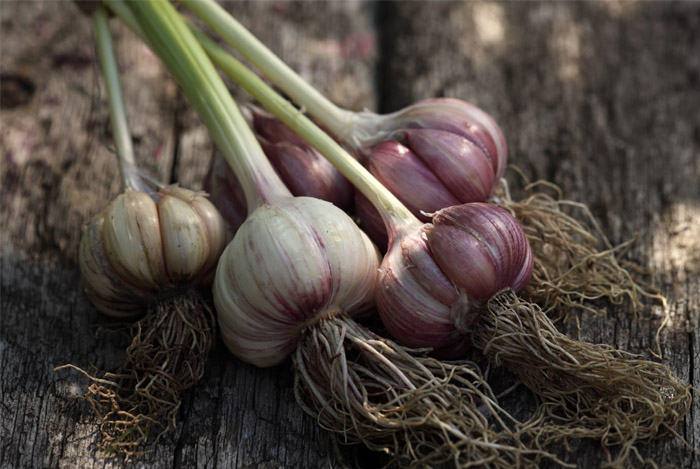 Garlic has been used for centuries as a natural medicine due to its antibacterial, antiviral, anti-fungal and anti-inflammatory properties, which all enhance and protect our immunity.
Garlic has been used for centuries as a natural medicine due to its antibacterial, antiviral, anti-fungal and anti-inflammatory properties, which all enhance and protect our immunity.
One study, carried out over a 12-week period, has shown that a garlic supplement can protect against the common cold.
One hundred and forty-six subjects received either a garlic supplement or a placebo every day during the trial. Those taking the garlic had significantly fewer colds than those in the placebo group – 63% less in fact.
Of those taking the supplement that did get sick, the average length of symptoms was reduced by 70%, from 5 days in the control group to just 1.5 days in the garlic group.
Researchers concluded that a chemical in garlic, known as allicin, can prevent attack by the common cold virus.
What makes allicin so great?
Research published in the journal Microbes and Infection, states that in it’s pure form, allicin has been found to exhibit antibacterial activity including against multidrug-resistant strains of E. coli; antifungal activity, particularly against candida; anti-parasitic activity; and antiviral activity.
You don’t need to take a garlic supplement to get the goodness of allicin – fresh garlic will do the trick.
But, you have to know the secret behind releasing allicin from garlic.
You need to crush, chew or chop the garlic clove, and then wait for five minutes before eating, so that the allicin is most potent.
Garlic possesses numerous other health benefits, which you can read about here.
Tea
 A cup of tea does more than warm you up in winter, it boosts immunity. In studies, both the green and black varieties have been found to play a role in keeping illness at bay.
A cup of tea does more than warm you up in winter, it boosts immunity. In studies, both the green and black varieties have been found to play a role in keeping illness at bay.
According to research carried out and published in 2011 by Oregon State University, an antioxidant in green tea (EGCG), plays a vital part in supporting the immune system, as well as suppressing autoimmune diseases, which can range from simple allergies to multiple sclerosis (MS).
While its effects were not as strong as some of those produced by prescription medications, don’t forget that green tea doesn’t carry with it the same concerns when it comes to long-term use or toxicity.
Other research that same year looked at green tea’s effects on the influenza infection in Japanese school children.
Over 2,000 pupils, between 6 and 13 years of age, were asked to complete surveys during the winter months. It was found that those who drank between one and five cups of green tea a day suffered the fewest cases of flu.
The research also showed that there were no real added benefits to be gained by drinking more than five cups.
Let’s not forget about black tea.
A 2003 study found that a compound in black tea, L-theanine, primes the immune system to attack invading bacteria, viruses and fungi.
A second study showed that the immune system blood cells from tea drinkers responded five times faster to invaders than the blood cells of coffee drinkers.
Black tea may also help in another way too – by lowering stress levels. It’s well known that high stress levels can leave us more susceptible to illness.
2006 research saw 75 healthy men given either four cups of black tea daily for six weeks, or four cups of another caffeinated beverage.
After being exposed to ‘everyday stresses’, it was found that the tea group recovered much quicker from the effects of stress exposure than those in the placebo group.
Mushrooms
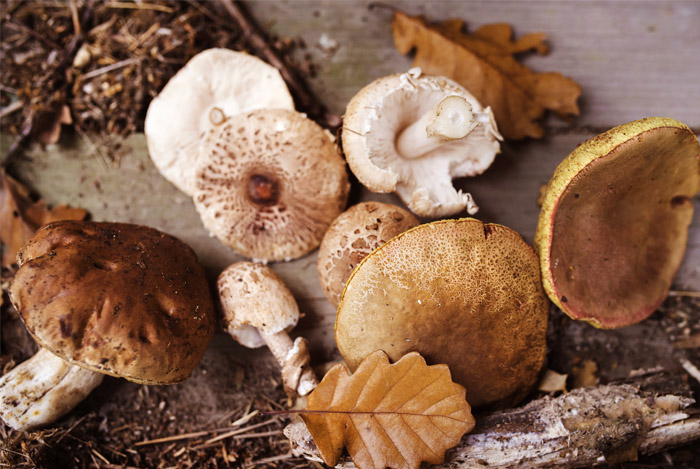 Mushrooms are a rich source of antioxidants, and other nutrients, which may just work to boost immunity.
Mushrooms are a rich source of antioxidants, and other nutrients, which may just work to boost immunity.
Several studies on mushrooms and their health benefits were published in 2013 in the Journal of the Federation of American Societies for Experimental Biology (FASEB).
One of these studies involved 51 healthy adults consuming either 50 g or 100 g of dried, whole Shiitake mushrooms every day for four weeks.
At the end of the 28 days, participants’ blood was tested for the presence of molecules called cytokines, which activate an immune responses by signaling to cells to move towards areas of inflammation, infection and trauma.
In both groups, cytokines levels had risen significantly, when compared with pre-trial levels, indicating that just 50 g of Shiitake mushrooms can improve your immune system.
A separate seven year study, funded by the National Institutes of Health, came to the conclusion that the lesser-known ‘Turkey Tail’ mushrooms can improve immunity in women with breast cancer, when eaten daily.
In animal studies, another variety of mushrooms, the common white button kind, have been shown to have similar immune-enhancing effects.
Fermented Foods
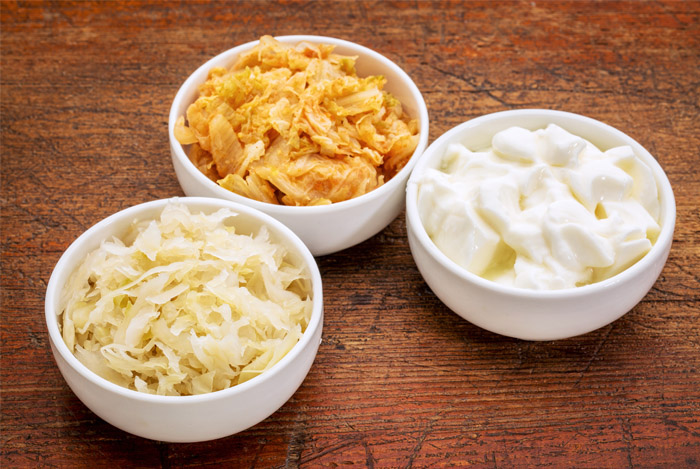 Fermentation, or ‘culturing’, is a food preservation technique carried out by allowing bacteria, yeasts and other micro-organisms to partially break down the food.
Fermentation, or ‘culturing’, is a food preservation technique carried out by allowing bacteria, yeasts and other micro-organisms to partially break down the food.
Fermenting improves the digestibility of food while contributing to our gut health, by giving us added ‘beneficial bacteria’ (also known as probiotics).
You may be wondering how food that is good for our gut is good for our immunity.
Well, it’s thought that about 80% of our immune system is located in our digestive system, meaning that a healthy gut would certainly play a part in immunity.
A review of several studies, published in 2001 in the American Society for Clinical Nutrition, outlines the effects of probiotics on immunity.
The authors conclude that probiotic bacteria have the ability to regulate the immune system, and prevent inflammation.
In another study, researchers at the University of Medicine and Dentistry in New Jersey (now Rutgers School of Dental Medicine), found probiotics helped reduce both the duration and severity of cold symptoms.
In the study, 198 students were given a placebo or probiotics. Those taking the probiotics missed less than half the school days of the placebo group (15 vs 34 missed days) and reported a 34% reduction in severity of symptoms.
Their colds also lasted 48 hours less.
Other research shows that, even those who put their bodies under extreme pressure, leaving them susceptible to illness, can benefit from probiotic bacteria.
Highly trained, long-distance male runners were followed for four months of winter training. Half were given probiotics, the others a placebo.
It was found that the probiotics led to “a substantial reduction in the number of days and severity of respiratory illness” among the runners.
Examples of fermented foods include raw yogurt, sauerkraut, kimchi and miso.
Be warned – they have a certain, tangy taste that is most definitely acquired. If you prefer, you can always try a good quality probiotic capsule.
Chicken Soup
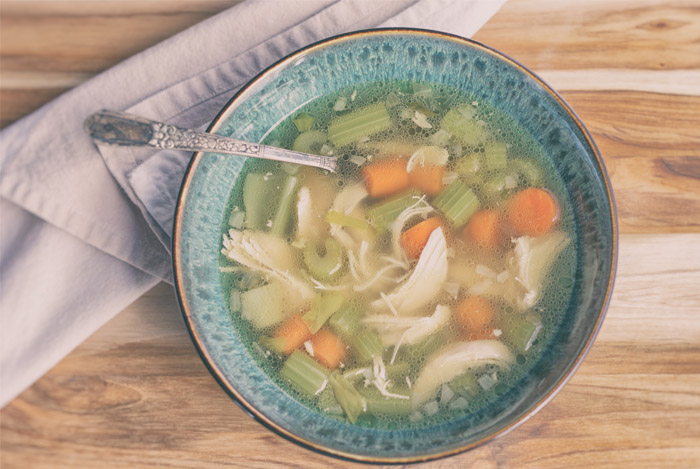 The old wives’ tale that chicken soup is good for a cold may just have some merit to it!
The old wives’ tale that chicken soup is good for a cold may just have some merit to it!
Dr. Stephen Rennard of the University of Nebraska Medical Center published research in 2000 evaluating the effect of chicken soup on the common cold.
He found that all but one of the soups tested had a mild anti-inflammatory effect, which may alleviate the symptoms of an upper respiratory tract infections.
While Rennard couldn’t say for sure the exact mechanism by which the soup works, it seems it’s not just the chicken that can help with the inflammation – all of the vegetables present in the soup individually played a role.
Over a decade later, the interest in chicken soup’s immune benefits is still going strong.
2012 research, printed in the American Journal of Therapeutics, delved a little deeper into the mystery.
They found that a compound in the soup – carnosine – helped the body’s immune system to fight the early stages of flu.
Chicken soup isn’t just a placebo effect either.
Mount Sinai researchers looked at how cold water, hot water and chicken soup affected the movement of mucus.
The hot liquids both increased mucus flow, providing relief to sufferers, but the soup worked even better than the warm water – proving there is something in soup that does the trick.
Oats
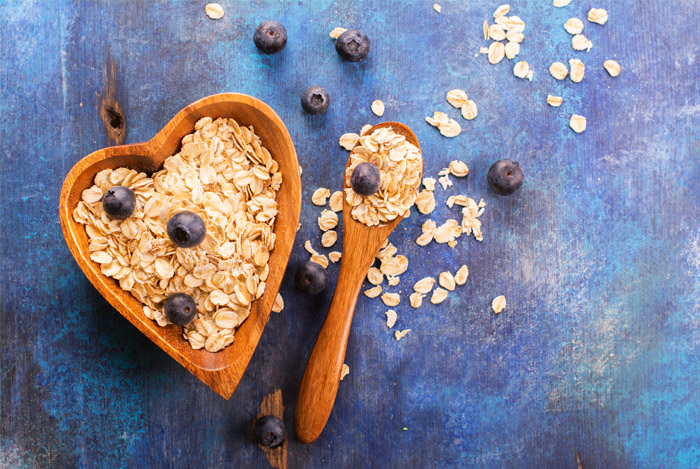 Oats contain a type of soluble fiber called beta-glucans, which are believed to have several positive health benefits, one of which is to support immunity.
Oats contain a type of soluble fiber called beta-glucans, which are believed to have several positive health benefits, one of which is to support immunity.
Italian researchers reviewed various existing studies on beta-glucans and found that they improve the body’s immune system defense against foreign invaders.
They do this by enabling certain cells in the body to respond to, and fight, a wide range of invaders like bacteria, viruses, fungi and parasites.
In 2010, researchers from the University of Illinois published work in the journal Brain, Behavior, and Immunity, which backs up the claims that soluble fiber in oats can reduce inflammation and boost the immune system.
In the study, mice were fed similar diets, the only difference being one group was fed soluble fiber while the other was given insoluble fiber.
After 6 weeks, scientists induced illness in the animals by injecting them with a substance that mimicked a bacterial infection.
Those on the soluble fiber were less sick than those given the insoluble fiber, and the mice in the soluble fiber group recovered 50% faster.
Oats make a quick and easy immune-boosting breakfast, especially if you follow my overnight oats recipe.
Fish
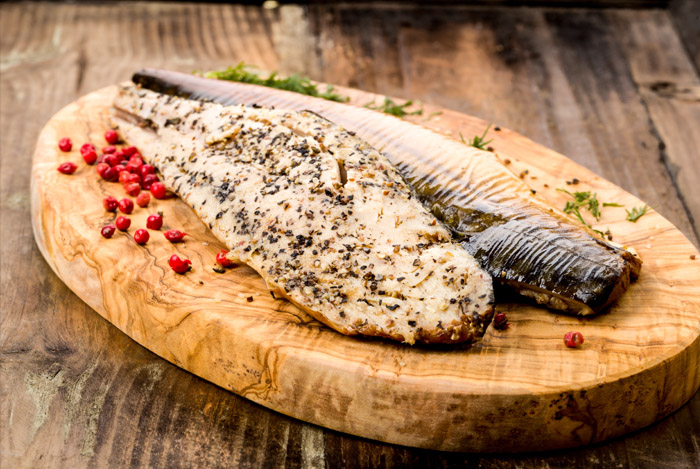 Fish, especially oily fish, is a fantastic and healthy superfood, thanks to its important nutrients, high quality protein and healthy fats.
Fish, especially oily fish, is a fantastic and healthy superfood, thanks to its important nutrients, high quality protein and healthy fats.
It’s one of the richest sources of vitamin D, something we now know is vital for a well-functioning immune system.
A paper on vitamin D, published in the Journal of Investigative Medicine, outlines its role in immunity. Most notably, vitamin D helps immune cells to produce the substances that fight microbes.
Vitamin D deficiency is also found in many cases of autoimmune diseases, whereas supplementing with it can help with these conditions.
Research published in 2013 has found that fish oil rich in omega 3 fatty acids not only reduces inflammation, but enhances immune effects.
In animal studies, the fish oil was shown to enhance the activity of a type of white blood cell that helps fight off foreign bacteria and other invaders that can make us ill.
Other sources of vitamin D include cheese, eggs, liver, mushrooms exposed to UV light, and fortified cereals and juices.
Spirulina
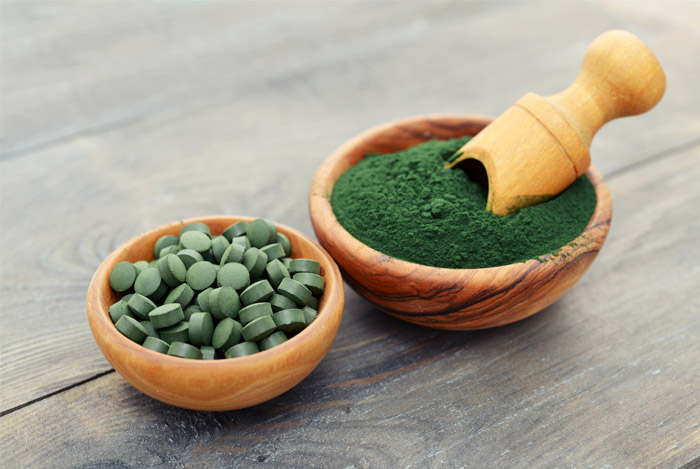 If you haven’t tried this ‘pond-scum turned superfood’ yet, check out my article on why you should.
If you haven’t tried this ‘pond-scum turned superfood’ yet, check out my article on why you should.
One of spirulina’s many health benefits is that it can enhance immunity.
In 2002 research, it was found to give a boost to the immune system function while suppressing the development of viral infections.
Furthermore, a 1996 study on chickens showed that spirulina supplementation increased several immunological functions in the animals.
Research on humans, carried out in 2011, saw 30 volunteers of both genders, aged 50 or older, take a spirulina supplement for 12 weeks.
Tests compared participants’ complete cell count and enzyme activity (as a sign of immune function), before the study and at weeks 6 and 12 of supplementation.
It was found that all participants showed increased immune function after supplementing with spirulina, although the women appeared to benefit more rapidly than the men.
Spirulina also shows promising anti-inflammatory and antioxidant capabilities – both important for keeping diseases at bay.
Final Thoughts
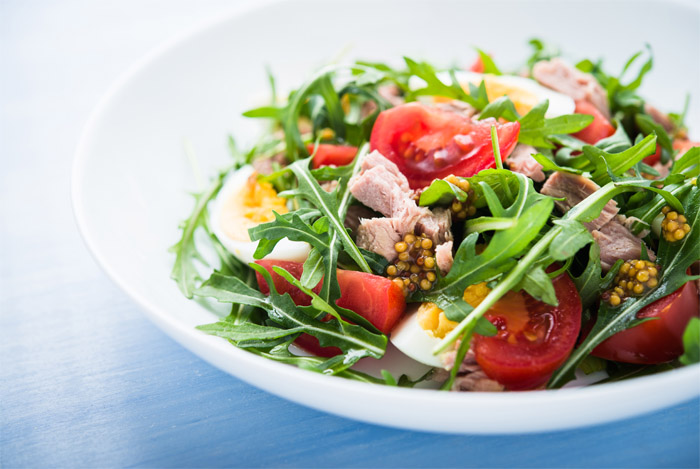 As you can see there are plenty of scientific studies showing the merit of various foods when it comes to combating sickness and improving your immune function.
As you can see there are plenty of scientific studies showing the merit of various foods when it comes to combating sickness and improving your immune function.
But, by only choosing to focus on certain foods, and consuming them in isolation, you won’t stave off illness.
The only way to do that is to make sure you have a well-rounded diet, full of all the nutrients our bodies need to function at their best.
Complex carbohydrates, healthy fats, lean protein and a variety of colorful fruits and veggies all play a role in boosting our immune system.
To learn more, check out my article on how good nutrition stops you from getting sick.
Have you any tried and tested foods you eat when you feel an illness coming on?
The post 8 Foods That Are Great For Your Immune System appeared first on Nutrition Secrets.
http://www.nutritionsecrets.com/foods-that-are-great-for-your-immune-system/
No comments:
Post a Comment